The Raven Prince, by Elizabeth Hoyt
>> Friday, December 08, 2006
It was the review at DearAuthor.com that sold me on The Raven Prince (excerpt), by Elizabeth Hoyt. Or rather, the review sold me on putting the book in my wish list, but it was one of the comments, which mentioned the two magic words, Liz and Carlyle, that made me want to read it immediately.
If I hadn't known that TRP was Hoyt's debut before I started reading, I never would have guessed it. Her style is smooth and assured, and the resulting book excellent. A B+.THERE COMES A TIME IN A LADY'S LIFE...
Widowed Anna Wren is having a wretched day. After an arrogant male on horseback nearly squashes her, she arrives home to learn that she is in dire financial straits. What is a gently bred lady to do?
WHEN SHE MUST DO THE UNTHINKABLE...
The Earl of Swartingham is in a quandary. Having frightened off two secretaries, Edward de Raaf needs someone who can withstand his bad temper and boorish behavior. Dammit! How hard can it be to find a decent secretary?
AND FIND EMPLOYMENT.
When Anna becomes the earl's secretary, both their problems are solved. Then she discovers he plans to visit the most notorious brothel in London for his "manly" needs. Well! Anna sees red-and decides to assuage her "womanly" desires . . . with the earl as her unknowing lover.
Edward de Raaf, the Earl of Swartingham has a rotten temper, and this keeps costing him his secretaries. He needs a new one ASAP, so he orders his agent, Mr. Hopple, to find him one before he returns from London. That turns out to be a harder job than it seems, so poor Hopple is forced to go as far as to consider a woman for the job.
The woman in question is widow Anna Wren. Anna's late husband left her some pitifully small investments, and they aren't doing very well lately, so she's been forced to look for a paying job. She finds nothing suitable until, in desperation, she practically forces Hopple to hire her.
Anna proves to be an excellent secretary, and she and Edward develop a productive working relationship. But there's also a very strong -though unacknowledged on either side- attraction there, and when Anna accidentally finds out that Edward will be visiting a notorious brothel, one in which high-born ladies sometimes put on masks and play the whores, a plan begins to form.
Yep, our respectable widow goes as far as to engineer a secret meeting with Edward at Aphrodite's Grotto and, hiding her identity with a mask, proceeds to have wild, torrid sex with him. Ordinarily, I'd say "Oh, puh-leeze!", but Hoyt writes it in such a way that it's good, really good.
I think the main thing was that she made me buy the thought processes that led to Anna's very risky decision. Her unconscious, barely acknowledged reasoning is that Edward's arousal was provoked by her, and so it somehow belongs to her. She won't tolerate him giving it to someone else; it's her right to use it, as it were. I thought this rang very true, especially given her experiences with her late husband, who did take his sexual desire and give it to other women, not caring that he was leaving his wife sexually unfulfilled and frustrated.
Another reason why I liked this plot element was what was going on in Edward's mind at the time. Unfaithfulness is a touchy subject for me, and I see it as a broader concept than merely sleeping with someone else once the hero and heroine are involved. The situation here comes kind of close, because when Edward sleeps with his mysterious prostitute at the Grotton, though nothing has yet happened between him and Anna, he is very attracted to her, almost obsessed, I would say. And yet, I didn't mind it at all, because Hoyt was able to make me believe that Edward subconsciously knew that Anna and the prostitute were one and the same, and even that this was the very basis of fascination with the latter. In fact, he develops for this mysterious woman an obsession almost identical to that he still feels for Anna, and these feelings merge in his mind, as do his fantasies.
Both Edward's and Anna's characterizations were wonderfully done. As often is the case in romance, he was the more interesting character, but Anna was perfectly three-dimensional herself, with her imperfections and her sense of humour and her sometimes inappropriate (but very human) feelings.
As I said, though, Edward is even more interesting. If I've ever read a book with a hero with a more volatile, explosive temper, I've forgotten it. We're not talking about "coldly angry", or anything like that. No, the guy practically throws tantrums and has fits. He breaks things and screams. It doesn't sound very attractive, but three things make it better: a) that he contains himself quite a bit with Anna; b) that even if he didn't, Anna would be perfectly ready to tell him to calm down or else; and c) that even though he gets angry easily, this is not an angry man. I don't know if I'm explaining the last one well, it's a matter of attitude. Edward is able to laugh at life and at himself, even, after the fact, to laugh at how angry he was.
There's also a very appealing vulnerable side to Edward. His whole family died of the pox many years earlier, and he was the sole survivor. This reflects in many aspects of his personality, especially in his hunger for a family of his own (a problem, because Anna didn't have children in years of marriage, which they assume indicates barreness. I liked the way this was resolved, though, the way he ended up accepting it). The pox also left him riddled with scars, which, in turn, adds to the loneliness and vulnerability, because he's become used to women finding the scars disgusting, including his first wife.
When the truth about the whole deception comes out, Edward is (predictably) very angry, but soon he comes to see the good things about a woman being so excited by him that she'd do something like this, and it was lovely to see.
Ok, this is getting much too long, so I'll just list a few more things that struck me. I loved the setting. TRP takes place in 1760, and I enjoyed the different sensibilities to the more common Regencies (would a genteel woman be able to work for a man like Edward, though, often spending time with him unchaperoned, and not have her reputation suffer? Maybe someone more knowledgeable about the period can tell me. I just shrugged and thought "ok"). I loved the fashion, too, including Edward's friend with the red heels. Oh, and speaking of fashion, Hopple's waiscoats! Hopple was marvellous comic relief.
I loved almost everything about TRP, but there were a few negatives. First and foremost is the blackmail plot, which felt to me pretty unnecessary. It felt as if Hoyt thought that the book needed some kind of sense of impending menace, and so added this, but it never really got off the ground. Plus, it sparked Anna's only TSTL-ish action.
I also rolled my eyes a little bit at the inclusion of the prostitutes. I guess it was a way of getting Anna to gain entrée to Aphrodite's Grotto, but it was just so clichéd!
And finally, that fairy tale about the Raven Prince that is told at the start of each chapter: it was entertaining enough a tale, but what exactly was the point of it? I do see a couple of parallels with the plot here, with the hero who's literally a "beast" and the hero and heroine having sex with one of them not realizing who the other is, but I don't really think it added anything to the main story.
Small stuff compared to all that was great about the book, right? No wonder I want to read the next one, The Leopard Prince. Amazon UK has a very intriguing summary here.




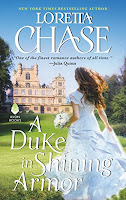
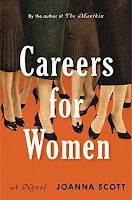
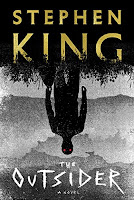
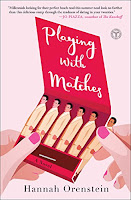
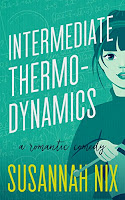
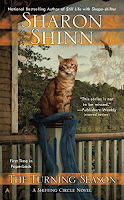
0 comments:
Post a Comment